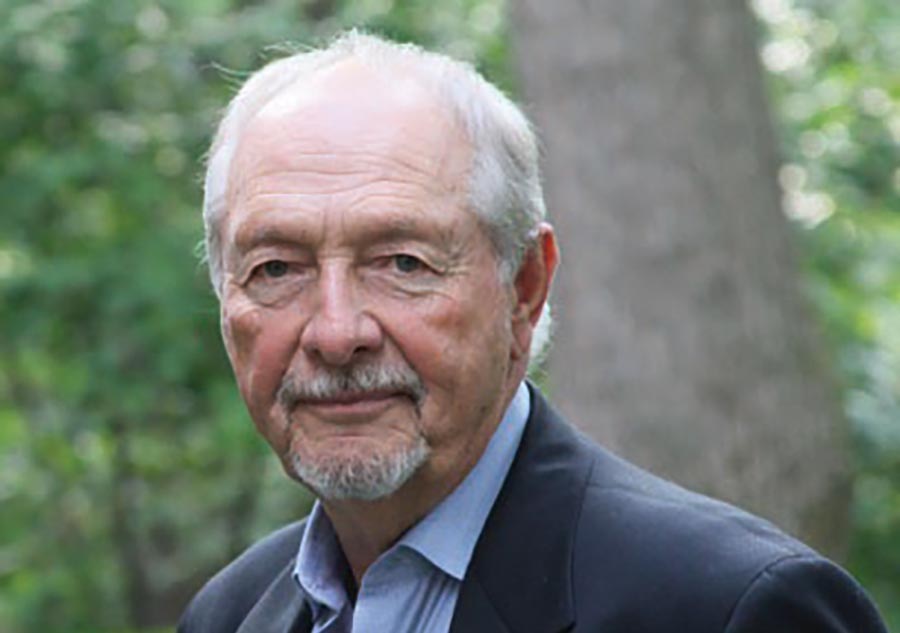Shelter Island Library conversation with an agent of change

Zooming into an interview with Robert Zellner last Friday night was like opening a window into a distant past.
Yet Pulitzer-prize winning historian Diane McWhorter’s discussion with the civil rights activist, part of the Shelter Island Library’s Friday Night Dialogue series, was often startlingly relevant to issues of today.
Mr. Zellner’s story of the throes of civil rights turmoil of the 1960s was detailed in his 2008 autobiography, “The Wrong Side of Murder Creek.” Now, the story has been made into a movie by Spike Lee, “Son of the South,” and released this month.
While attending a small college in Montgomery, Ala., Mr. Zellner sought to interview civil rights leaders for a sociology course research project. He wound up meeting Rev. Dr. Martin Luther King Jr. and Rosa Parks at Rev. Ralph Abernathy’s church.
“We wanted to study what they were doing,” he recalled in Friday’s interview, “but we were not permitted to do so. If you sat with a Black person, it was against the law, in deepest Alabama and Mississippi.”
The son and grandson of Ku Klux Klansmen, Mr. Zellner began to turn away from their racism as he learned more about the rights that were being denied to Black Americans.
Ms. McWhorter’s book, “Carry Me Home: Birmingham, Ala., the Climactic Battle of the Civil Rights Revolution,” won the Pulitzer Prize. During the discussion, she recalled scenes of anger and violence as depicted in the movie. “Freedom Riders who sought to desegregate buses and trains were beaten by Klansmen in Birmingham and Montgomery with the protection of the police,” she said. “It was noticeable that there were well-dressed women in the mob that attacked the Freedom Riders.”
Mr. Zellner responded, drawing parallels with those attacks and the current wave of extremist violence in this country. “Ordinary people can be brainwashed,” he said, “and they fear that other people are threatening to their way of life.”
Mr. Zellner’s early activism took him to the Student Non-Violent Coordinating Committee (SNCC), where he became their first white field secretary. He visited colleges and recruited socially conscious white students to the cause, but also organized non-violent demonstrations. During those turbulent times, he was arrested 18 times and often subjected to assaults and death threats.
After leaving SNCC, Mr. Zellner continued his activism, which included helping disadvantaged Whites as well as Blacks in the Poor People’s Campaign. He was associated with the Southern Conference Educational Fund and the Grass Roots Organizing Work (GROW), which he helped to found.
In his later years, he moved to the East End where, among other things, his activism continued on behalf of the Shinnecock Nation. Not long ago he returned to the South as a healthcare advocate.
In introducing Mr. Zellner at the opening of the discussion, Ms. McWhorter said his story could be entitled, “How to be a Mensch.” She elaborated on the complimentary term, usually accorded to a person of integrity and honor, saying it reflected “decency converted into action.”
“I needed to learn how to change myself,” he said, “more than try to change anybody else.”
This event was the third of the series known as “Necessary Bridges,” a collaboration between the Shelter Island Public Library and the Shelter Island Health and Wellness Alliance. The series, born from the Shelter Island student-led protests against racial inequality during the summer of 2020, seeks to promote education and better understanding of social justice issues.
Bonnie Stockwell, Alliance member and the inspiration behind “Necessary Bridges,” has said, “We were so moved by the effort of Shelter Island’s youth in motivating the community that we wanted to keep the momentum going.”








